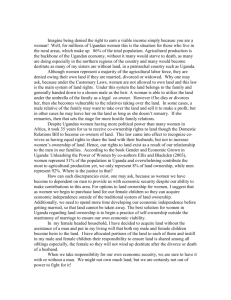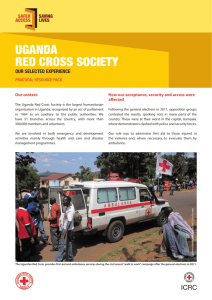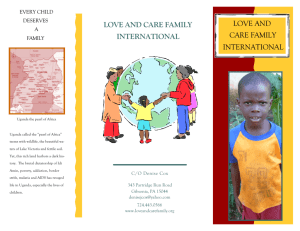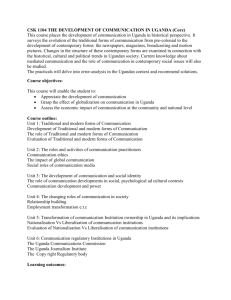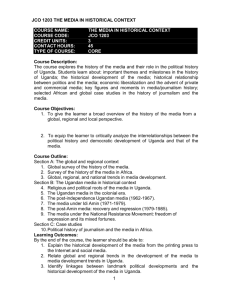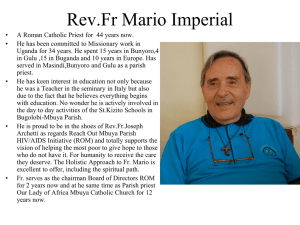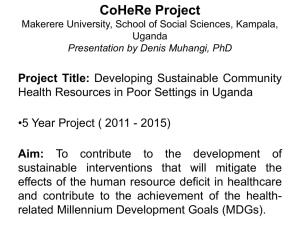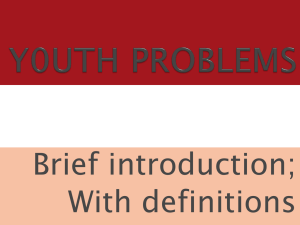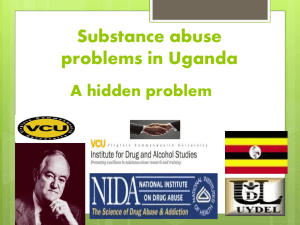Uganda - GeogOnline
advertisement
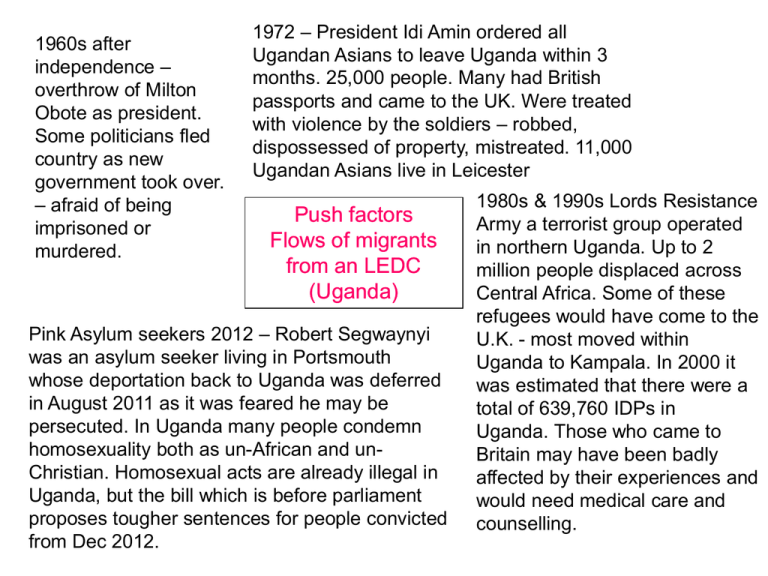
1960s after independence – overthrow of Milton Obote as president. Some politicians fled country as new government took over. – afraid of being imprisoned or murdered. 1972 – President Idi Amin ordered all Ugandan Asians to leave Uganda within 3 months. 25,000 people. Many had British passports and came to the UK. Were treated with violence by the soldiers – robbed, dispossessed of property, mistreated. 11,000 Ugandan Asians live in Leicester Push factors Flows of migrants from an LEDC (Uganda) Pink Asylum seekers 2012 – Robert Segwaynyi was an asylum seeker living in Portsmouth whose deportation back to Uganda was deferred in August 2011 as it was feared he may be persecuted. In Uganda many people condemn homosexuality both as un-African and unChristian. Homosexual acts are already illegal in Uganda, but the bill which is before parliament proposes tougher sentences for people convicted from Dec 2012. 1980s & 1990s Lords Resistance Army a terrorist group operated in northern Uganda. Up to 2 million people displaced across Central Africa. Some of these refugees would have come to the U.K. - most moved within Uganda to Kampala. In 2000 it was estimated that there were a total of 639,760 IDPs in Uganda. Those who came to Britain may have been badly affected by their experiences and would need medical care and counselling. The UK was the colonial power which gave Uganda independence in 1962. The political elite would speak English and there was ‘moral’ obligation to house political refugees when Milton Obete’s government was overthrown. UK took many of the Ugandan Asians – there was a degree of ‘racist’ resistance from the UK at that time. Many of the Ugandan Asians had business acumen and forged new lives in the UK. Leicester received 11,000. Central TV coverdd the 40th anniversary with 5 special news reports in 2012. Ugnada has tried to encourage some Ugandan Asians to repatriate. PULL factors Flows of migrants into an MEDC (UK from Uganda) Robert Segwaynyi was a ‘gay’ asylum seeker but it was assumed he was primarily an economic migrant and the UK government wanted to deport him. A campaign – mainly by Christians in Portsmouth – halted the deportation ‘temporarily’ in 2011. He was released from detention in September 2011 as it is recognised his case has some merit. ‘Gay’s are liable to persecution in Uganda and are not treated with ‘equality’. Asylum Seekers from the LRA would be granted ‘refugee status’ if arriving in the UK. Especially former child soldiers or trafficked young people. Some may not have documents and would have difficulty proving their status. It might be assumed they were economic migrant unless supporting evidence were available.
